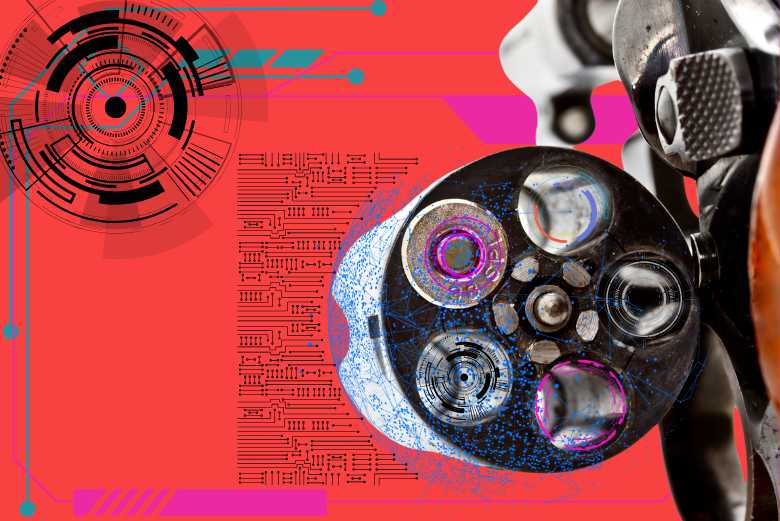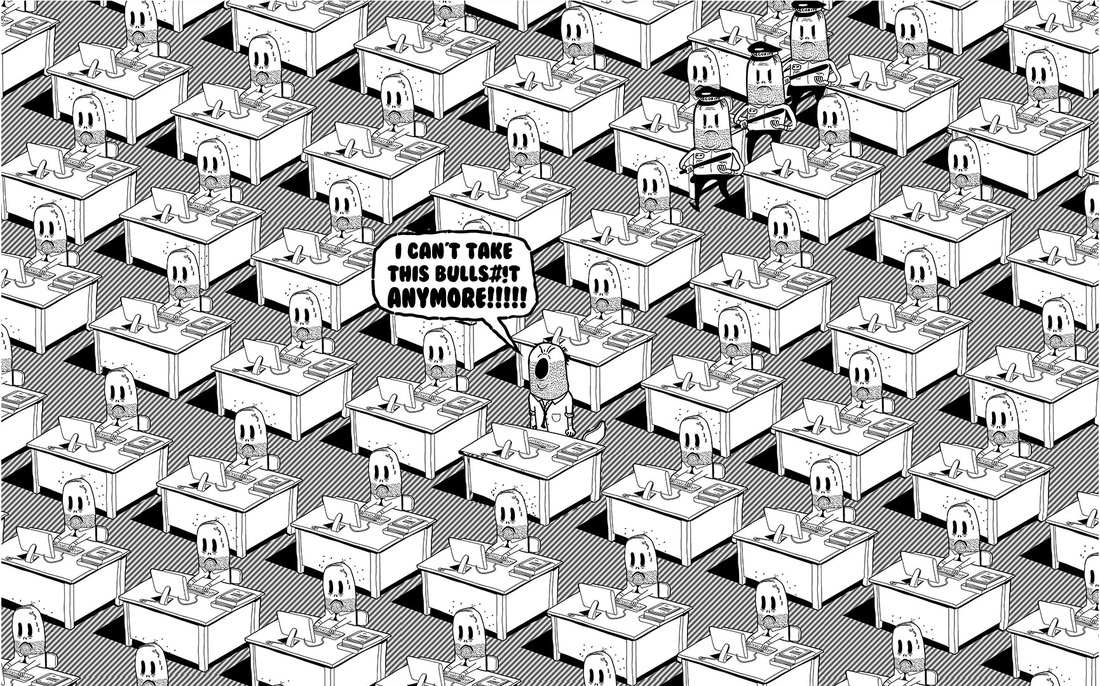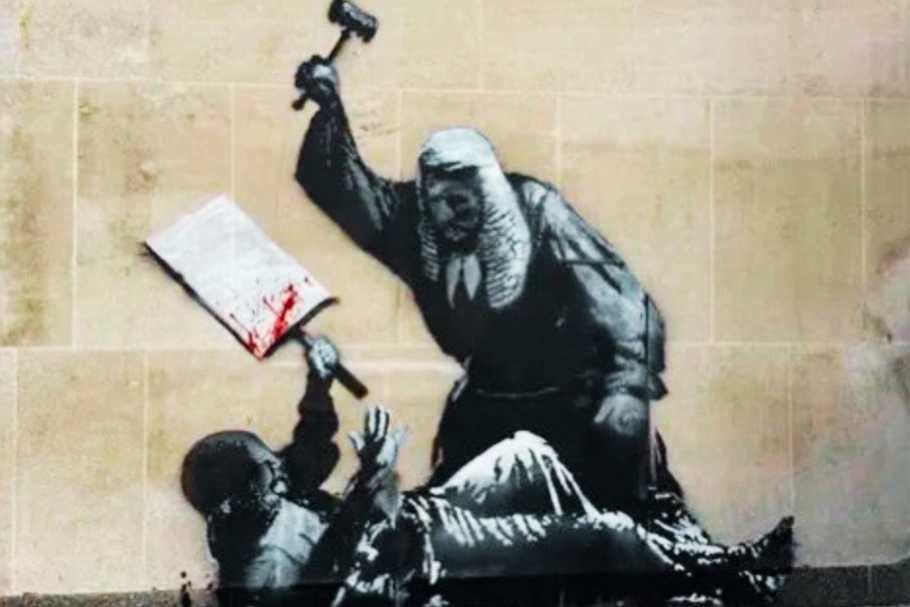The first article on Ideas Too Dangerous to Share explored how censorship and suppression stifle critical debates and challenge entrenched power dynamics in the digital age. Yet, the conversation doesn’t end there. Dangerous ideas remain pivotal in shaping society’s trajectory, especially when we lean into their complexity rather than shy away.
In this follow-up, we delve deeper into another ten transformative ideas that threaten to upend the status quo. From questioning the morality of AI-driven warfare to envisioning decentralized alternatives to economic growth, these ideas reveal the fault lines of our time. By dissecting their patterns, unpacking the paradoxes they generate and charting pathways forward, we aim to mine these ideas for the insights needed to navigate our collective future.
These explorations have also been instrumental in informing The Commons Economy, a framework centred on collective resilience, cultural production and socio-economic innovation. The roadmap these ideas offer is not just a theoretical exercise but the groundwork for frameworks like Art Stoke Commons.
1. AI and Autonomous Warfare: Erosion of Morality in the Face of Power
With AI already being used in military warfare, such as autonomous drones and robots, the ethical considerations of delegating life-and-death decisions to machines remain contentious. AI-driven warfare removes human accountability from industrial scale killing making the moral dimension of war even more onerous.
The pace of AI and autonomous weapon development shows a clear priority for military efficacy over ethical safeguards. Powerful nations are less interested in discussing or implementing ethical constraints on AI in warfare because they see clear strategic advantages in advancing these technologies. This willingness to bypass ethical considerations in favour of power is not just theoretical; it’s already happening in practice.
Stuart Russell argues for a global ban on autonomous weapon systems, emphasizing the risk of AI making life-or-death decisions without human oversight. He suggests that while AI can enhance military capabilities, it poses existential threats if left unchecked, especially concerning accountability for unintended civilian casualties.
Noel Sharkey highlights the lack of international regulation around autonomous weapon systems, stressing the ethical and legal implications of delegating lethal decisions to machines. He co-founded the Campaign to Stop Killer Robots to advocate against the use of such technology.
Mary “Missy” Cummings brings a different angle by focusing on how autonomous systems, while risky, can also reduce human error in warfare. She argues for strict guidelines to ensure that AI augments human decision-making rather than replacing it.

2. The Potential for Bitcoin as a Tool for Social Uprising
While many view Bitcoin as a store of value or an investment opportunity, it can also be seen as a tool for financial resistance against centralized control. The implications of using cryptocurrencies to undermine state currencies or evade financial surveillance are contentious and highly regulated in some countries.
Andreas Antonopoulos views Bitcoin as a revolutionary technology that enables financial sovereignty, especially for those under oppressive regimes. He argues that by bypassing traditional banking systems, Bitcoin can provide freedom from state censorship.
Alex Gladstein expands on this by discussing Bitcoin’s role in protecting human rights, particularly for people in countries facing hyperinflation or economic sanctions. He sees Bitcoin as a lifeline that preserves wealth and enables global transactions.
Saifedean Ammous provides an economic argument, suggesting that Bitcoin challenges fiat currencies and central banking. He posits that a Bitcoin-based economy could reduce debt-fueled consumption, creating a more sustainable financial system.

3. The Downsides of Infinite Economic Growth
Economic models prioritize endless growth, but the sustainability and ethical implications of this paradigm are seldom questioned. Discussing the need to shift toward degrowth or steady-state economies challenges entrenched capitalist ideologies and could be considered too radical for mainstream discourse.
Kate Raworth criticizes the obsession with GDP growth, advocating for a “doughnut” model that balances human well-being with ecological sustainability. She argues for rethinking economic success beyond traditional metrics and focusing on meeting basic needs within planetary boundaries.
Tim Jackson challenges the notion that technological advancements can decouple economic growth from environmental degradation. He argues for alternative indicators of progress that prioritize quality of life and social well-being over profit.
Naomi Klein connects the critique of economic growth with environmental activism, pointing out that unchecked capitalism drives ecological collapse. Her work emphasizes the need for systemic change to combat climate change effectively.

4. Decentralized Autonomous Organizations (DAOs) as a Threat to Nation-States
If DAOs continue to grow and gain more autonomy, they could disrupt traditional governance structures by offering an alternative form of self-organization and decision-making. Exploring the extent to which DAOs could replace certain state functions or influence geopolitical power dynamics is a controversial idea.
Vitalik Buterin views DAOs as a means to decentralize power structures and governance, potentially reducing corruption and enhancing transparency. He believes DAOs can offer a new form of democratic participation, though there are still technical and legal challenges to address.
Gavin Wood advocates for a Web3 ecosystem where DAOs are central to decentralized governance, allowing individuals to self-organize outside of traditional state systems. He argues that blockchain technology can challenge centralized institutions by distributing decision-making power.
The Aragon Team sees DAOs as a tool to redefine organizational structures, making them more flexible and resilient. Their platform provides a way to create and manage decentralized organizations, promoting self-governance and autonomy.
5. The Right to Digital Self-Defence
With increasing surveillance by governments and corporations, the idea that individuals should have the right to digital self-defence—potentially including hacking as a form of resistance or protection—challenges legal and ethical norms around cybersecurity.
Edward Snowden emphasizes the importance of encryption as a form of digital self-defence, enabling individuals to protect their privacy from state surveillance. He has called for widespread adoption of encrypted communication tools to safeguard against invasive monitoring.
Bruce Schneier argues for a “public interest technologist” approach, where developers prioritize user security and privacy. He emphasizes the risks of surveillance capitalism and advocates for stronger privacy laws and digital rights.
Cory Doctorow takes a more cultural approach, criticizing the monopolistic tendencies of tech giants that erode digital freedom. He argues for “adversarial interoperability,” where new services can compete with established platforms by interoperating with them.
Jaron Lanier criticizes social media for exploiting users’ data and manipulating behaviour. He advocates for users to delete their social media accounts and calls for new economic models that compensate individuals for their data.
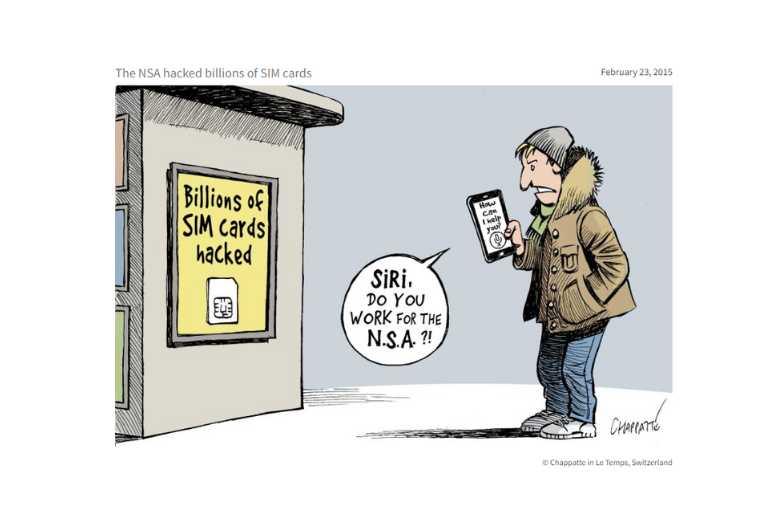
6. Radical Transparency in Corporate and Government Affairs
Proposals for radically increasing transparency in corporations and governments could disrupt power structures that rely on secrecy. Releasing classified or proprietary information could expose corruption or abuses but might also jeopardize national security or economic stability.
Glenn Greenwald has argued that the public has a right to know about government activities, especially when they involve surveillance or infringement of civil liberties. His reporting on the Snowden revelations highlighted the extent of state surveillance.
Daniel Ellsberg supported whistleblowing as a means to inform the public about government malpractices. He argued that transparency can prevent unnecessary wars and holds leaders accountable for their actions.
(Daniel Ellsberg) precipitated a national political controversy in 1971 when he released the Pentagon Papers. A 1996 article in The New York Times said that the Pentagon Papers had demonstrated, among other things, that Lyndon B. Johnson’s administration had “systematically lied, not only to the public but also to Congress about the USA’s involvement in the Vietnam War. For his disclosure of the Pentagon Papers, Ellsberg was initially charged with conspiracy, espionage, and theft of government property; charges were later dismissed, after (it was) discovered that the .. the Nixon White House had … engage(d) in unlawful efforts to discredit Ellsberg.
https://en.wikipedia.org
Julian Assange believes that radical transparency can act as a check on power, forcing governments to be more accountable by exposing their secrets.
As we approach the 20th anniversary of 9/11, in the midst of a wrenching reassessment of our endless wars, we cannot ignore the U.S. government’s persecution of those who revealed the brutality of the Afghan war and the lies on which it was founded.
The Biden administration .. stubbornly pursued the extradition of Julian Assange, who exposed the corrupt motives and doomed policies behind the War on Terror. This unprecedented political prosecution poses a grave threat to truth telling and freedom of the press.
https://www.newsweek.com/why-biden-prosecuting-assange-telling-truth-about-afghanistan-opinion-1627963
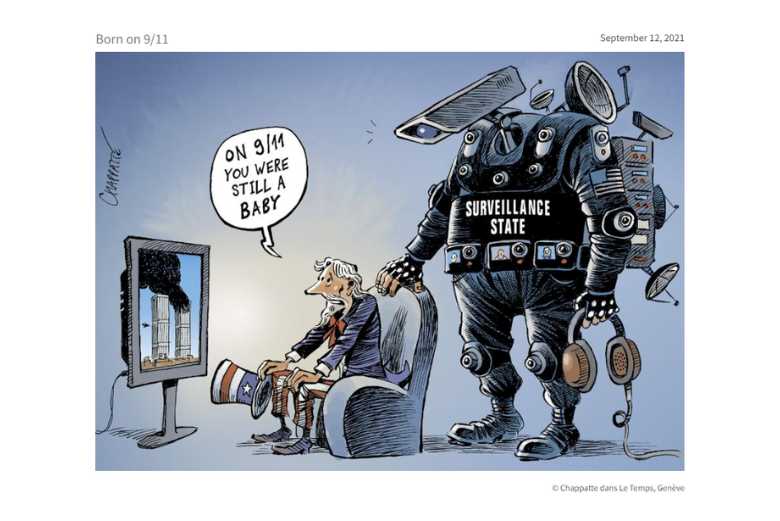
7. The Psychosocial Impact of a Hyperconnected World
The idea that social media and constant connectivity contribute to widespread mental health issues, social division and a loss of genuine community, challenges the perceived benefits of technological progress. The suggestion that reducing screen time or promoting digital minimalism might be essential to society’s well-being is often overlooked.
Sherry Turkle warns about the decline of face-to-face communication due to digital devices. She argues that meaningful conversations are being replaced by shallow interactions, affecting relationships and mental health.
Nicholas Carr discusses the cognitive effects of constant internet use, suggesting that it hampers deep thinking and concentration. He emphasizes the need to reclaim our attention from digital distractions.
8. Universal Basic Income (UBI) as a Path to Decentralized Social Safety Nets
While UBI is discussed as a government policy, its implementation via decentralized financial (De-Fi) platforms could create alternative welfare systems that operate independently of nation-states. Such proposals could undermine traditional government roles and provoke debates about citizenship and economic control.
Andrew Yang promotes UBI as a solution to job displacement caused by automation. He argues that providing a basic income would offer financial security and give people the freedom to pursue work that they find meaningful.
Rutger Bregman supports UBI not only as an economic safety net but also as a moral imperative to reduce poverty. He presents historical evidence showing that giving people money without conditions improves their well-being.
Guy Standing emphasizes the social benefits of UBI, arguing that it can alleviate the precarity of modern work and reduce economic inequality.
Art Stoke plans to experiment with innovative Universal Basic Income (UBI) applications within the Art Stoke Commons framework to explore whether there is a correlation between financial security and the creation of culturally significant art.
9. Climate Engineering as a Dangerous Pathway to Environmental Control
Geoengineering proposals, like solar radiation management or carbon capture, might sound promising for tackling climate change, but their long-term consequences are uncertain and could lead to geopolitical conflicts over who controls the Earth’s climate.
David Keith advocates for researching geoengineering as a “Plan B” in case climate change mitigation efforts fail. He supports solar radiation management but emphasizes that it should be used cautiously, as part of a broader climate strategy.
Clive Hamilton is critical of geoengineering, suggesting that it may give false hope and delay necessary emissions reductions. He questions the ethics of manipulating the Earth’s climate without a global consensus.
Ken Caldeira is open to geoengineering research but insists that it must be accompanied by strong emissions reduction efforts. He emphasizes the need for international cooperation to manage potential risks.
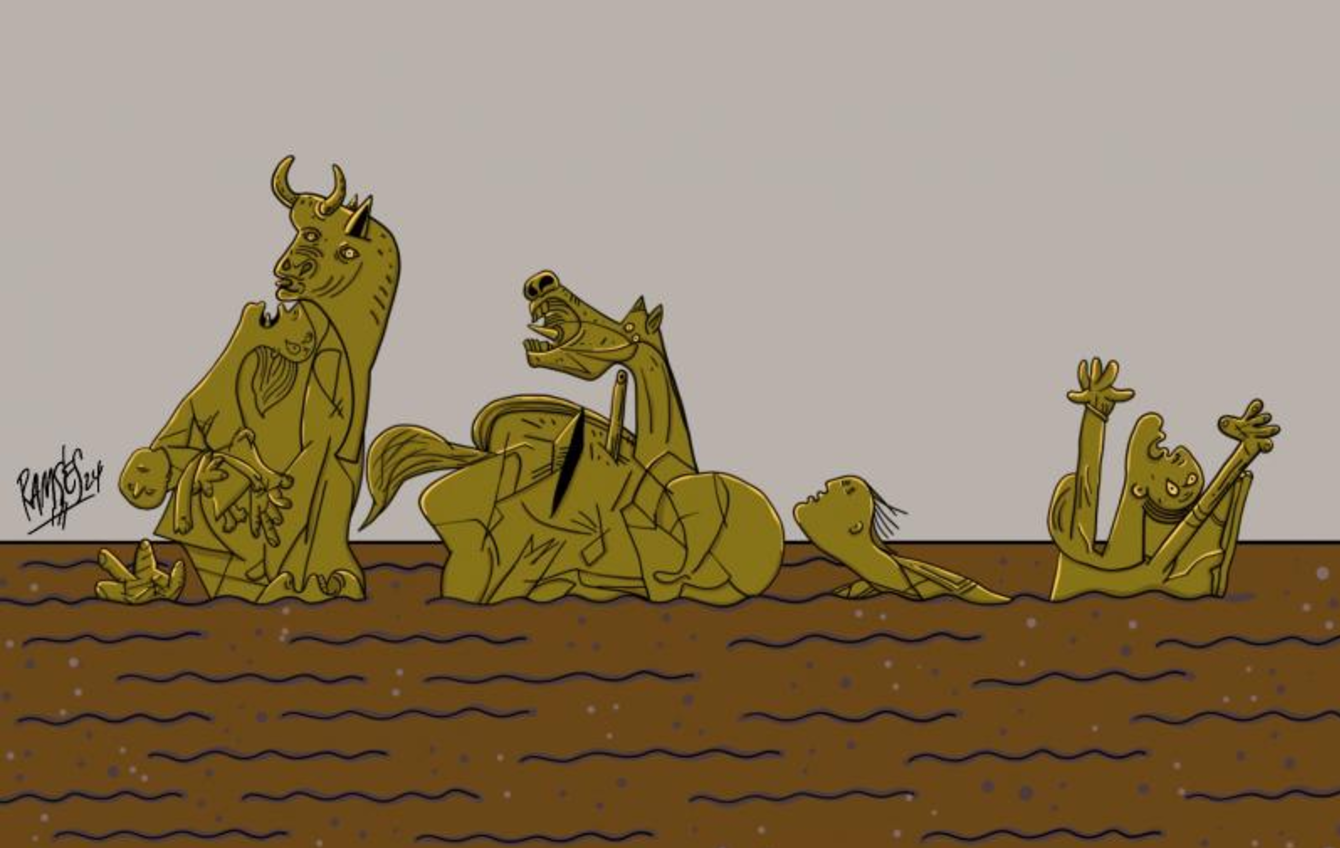
10. Decriminalizing All Drugs as a Path to Ending the War on Drugs
The idea of legalizing all drugs to shift the focus from criminalization to health care remains controversial. It could significantly disrupt law enforcement, incarceration rates, and pharmaceutical industries, while raising complex ethical and societal questions about addiction and freedom.
Johann Hari argues that the War on Drugs has failed, causing more harm than good. He supports decriminalization and emphasizes the importance of addressing the root causes of addiction, such as trauma and social isolation.
Ethan Nadelmann advocates for a harm reduction approach, suggesting that decriminalizing drugs could reduce overdoses and crime associated with drug prohibition.
Carl Hart challenges traditional views on drug use, arguing for a more nuanced understanding of drug-related behaviours. He supports decriminalization and policies that treat addiction as a health issue, not a criminal one.
From Ideas to Patterns and Themes
Each of the ten ideas discussed above, reflects deep societal, ethical and technological tensions. When viewed collectively, they reveal emerging patterns that frame the broader challenges and opportunities of our era. These pattern – whether challenging power structures, revising notions of progress, or embracing cross-disciplinary thinking – serve as touchstones for understanding how these dangerous ideas resonate across different contexts.
Challenging Established Power Structures
Many of these ideas involve questioning or directly opposing existing power dynamics, such as nation-states, centralized financial systems or corporate monopolies. The rise of decentralized autonomous organizations (DAOs), Bitcoin’s role in social uprisings, and radical transparency in governance highlight a push toward decentralizing power and redistributing control to individuals and smaller communities.
The critique of infinite economic growth also questions the legitimacy of growth-focused capitalism as the central measure of societal progress, challenging economic and political norms that prioritize profit over ecological and social well-being.
Ethics vs. Technological Advancement
The ethical implications of technological progress are central to discussions around AI in warfare, climate engineering, and hyperconnectivity’s impact on society. These debates often grapple with whether certain technological capabilities should be pursued just because they are possible.
There is a recurring concern over technology outpacing our ability to regulate its consequences, whether it be autonomous weaponry, manipulating the Earth’s climate, or the effects of social media on mental health. This reflects a call for a more responsible and ethically guided approach to technological development.
Redefining Economic and Social Safety Nets
Ideas like Universal Basic Income (UBI) and decentralized safety nets propose alternatives to traditional welfare systems, aiming to address issues of economic inequality and the instability of modern work. This points to a recognition that existing social structures are ill-equipped to cope with changes brought on by automation, globalization and the gig economy.
The decriminalization of all drugs also fits within this pattern, as it shifts the focus from punitive measures to social support, acknowledging addiction as a social and health issue rather than a criminal one.
Balancing Individual Freedom with Collective Responsibility
The tension between individual autonomy and social responsibility emerges in discussions around digital self-defence, radical transparency and Bitcoin as a tool for financial autonomy. On one hand, there is a push for more personal control and freedom from state or corporate surveillance; on the other, there is a recognition that unchecked freedom can lead to ethical dilemmas and criminal activity, like the potential for Bitcoin to be used for illicit activities (scams and money laundering).
Similarly, the debate over climate engineering reflects the struggle between intervening in natural systems to avert catastrophe versus respecting the inherent limits of human influence on the environment.
Confronting the Limits of Human Control
A recurring theme across these ideas is the acknowledgment of the limits of human control, whether it’s controlling climate through geoengineering, regulating AI in warfare, or managing social behaviour through drug policies. There is an underlying recognition that complex systems often produce unpredictable consequences, and interventions may have unintended and far-reaching effects.
This pattern suggests a need for humility in our approach to problem-solving, recognizing the risks of overconfidence in human ingenuity and technological solutions.
Revising Definitions of Progress and Success
The critique of infinite economic growth, combined with proposals like UBI and alternative governance models such as DAOs, suggests a broader rethinking of what constitutes progress. There is a shift away from traditional metrics like GDP growth and towards concepts like well-being, ecological sustainability, and social equity.
The impact of hyperconnectivity also challenges the idea that more information or more connectivity automatically leads to progress and wellbeing. It suggests the need to consider the quality of human experiences and relationships, not just their quantity or speed.
Cross-Disciplinary and Holistic Thinking
Many of these ideas encourage cross-disciplinary approaches, merging technology, economics, ethics and social sciences to address complex global challenges. For example, discussions around digital self-defence involve technology and law, while climate engineering spans environmental science, ethics and politics.
This reflects a systems-thinking mindset, where solutions are not isolated to one field but require an understanding of interconnected issues.
Empowering Individuals as Agents of Change
Whether through Bitcoin’s financial sovereignty, DAOs enabling new forms of governance, or digital self-defence practices, there is a recurring focus on empowering individuals to take control over their lives and challenge systemic issues. The emphasis on personal autonomy and grassroots movements resonates throughout, suggesting that change is not just the domain of institutions but also of individuals acting collectively.
These patterns illustrate an underlying desire to rethink existing paradigms, address ethical challenges posed by new technologies and find balance in a rapidly changing world. Together, these ideas suggest that significant social and technological change is needed, but it must be carefully managed to avoid exacerbating existing problems or creating new ones.
From Patterns to Paradoxes
Beneath these patterns lie the contradictions that define our age. The push for decentralization brings both empowerment and fragmentation. Technological progress offers solutions yet raises profound ethical dilemmas. These paradoxes are not mere obstacles but essential guides, helping us navigate the complexities of transformative change.
Empowerment vs. Vulnerability
While many of these ideas aim to empower individuals and decentralize control, such as through Bitcoin’s financial autonomy or digital self-defence, they also introduce new forms of vulnerability. For instance, decentralization can make systems more resilient, but it can also leave individuals more exposed to risks without traditional safety nets or institutional support (e.g. if cryptocurrency is stolen, there may be no recourse).
The push for radical transparency can empower people to hold institutions accountable, but it may simultaneously undermine privacy and create new risks for whistle-blowers or activists. There is a fine line between enabling public oversight and exposing individuals to harm.
Technological Advancement vs. Ethical Constraints
Many of these ideas highlight a paradox between pursuing technological progress and facing ethical limits. For example, AI in warfare and climate engineering represent technological capabilities that can theoretically solve significant problems (defence and climate change, respectively), but they also pose serious ethical dilemmas and risks of unintended consequences.
This tension suggests that while technology can be a powerful tool for solving problems, it can also create new ethical concerns that are difficult to navigate. As we advance technologically, the limits of what we should do become just as important as what we can do.
Individual Autonomy vs. Collective Responsibility
Ideas such as Universal Basic Income and decentralized safety nets emphasize individual autonomy and financial independence. Yet, at the same time, they rely on collective resources and a shared commitment to support each other, which may clash with individualistic values in some societies.
Similarly, digital self-defence tools enable people to protect their data and privacy, but widespread adoption of these tools can weaken collective security efforts, such as intelligence gathering or crime prevention. This paradox lies in balancing personal freedom with societal obligations.
Intervention vs. Respecting Natural Systems
The paradox of climate engineering lies in whether it is better to intervene in natural systems to avert climate catastrophe or respect the inherent limits of human influence and adopt more sustainable practices. While intervention can potentially reverse some negative impacts, it also risks unintended side effects that could exacerbate existing problems.
This same dilemma extends to other areas, like drug decriminalization, where the choice between intervening in personal behaviour (through prohibition and criminalization) versus adopting a more laissez-faire approach (through decriminalization and harm reduction) reflects deeper questions about the role of authority in managing human conduct.
Decentralization vs. Coordination
The push towards decentralized governance models like DAOs and Bitcoin’s decentralized financial systems is often motivated by a desire to reduce centralized control and increase individual agency. However, decentralization can make it more challenging to coordinate large-scale efforts or respond to crises. For example, decentralized organizations may struggle to make rapid decisions or reach consensus when urgent action is needed.
The paradox here is that while decentralization can empower individuals and democratize decision-making, it can also fragment efforts and hinder the ability to address global challenges that require coordinated responses.
Growth vs. Sustainability
The critique of infinite economic growth presents a paradox in that modern economies are deeply rooted in growth as a measure of success, but unrestrained growth is incompatible with long-term ecological sustainability. To move away from growth as the primary economic goal would require redefining progress and success in ways that may conflict with existing economic structures.
Attempts to achieve sustainable growth—where economies grow without depleting resources or harming the environment—may encounter contradictions, as economic growth often leads to increased consumption and resource use, which undermines sustainability goals.
Freedom vs. Security
The idea of digital self-defence seeks to protect individual freedom by allowing people to shield themselves from surveillance and data collection. However, this increased freedom can come at the expense of security, as it can make it more difficult for authorities to detect and prevent cybercrime, terrorism, or other threats.
Likewise, the paradox between privacy and radical transparency reflects a tension between the desire for personal privacy and the need for openness to prevent corruption and hold power accountable. Striking a balance between these conflicting needs is challenging, as both are essential for a functioning society.
Empowerment through Disobedience vs. Lawfulness
Some of these ideas, such as drug decriminalization or using Bitcoin for social uprisings, promote empowerment through civil disobedience or resisting established legal frameworks. However, they raise questions about where the line should be drawn between justifiable resistance and undermining social order.
While challenging unjust laws or regulations can be a powerful tool for social change, it also risks creating legal and moral ambiguities that can be exploited by those with less noble intentions.
These paradoxes reflect the complexity and interconnectedness of societal challenges. They suggest that while these “dangerous ideas” have the potential to transform the world, implementing them requires a nuanced approach that acknowledges and navigates the inherent contradictions.
From Paradoxes to The Way Forward
The paradoxes inherent in these ideas point not to inaction but to the need for nuanced, iterative approaches. The way forward involves designing resilient solutions that honour these tensions, fostering innovation while anchoring it in ethical considerations. Through mindful experimentation and collective action, these dangerous ideas can become catalysts for a more equitable and sustainable future.
Clarifying Tensions and Trade-offs
The paradoxes and patterns identified offer a clearer understanding of the inherent tensions that must be managed. For example, recognizing the trade-offs between individual freedom and collective responsibility, or technological advancement and ethical constraints, can help shape more balanced policies and approaches.
By acknowledging these tensions upfront, it becomes possible to design solutions that are more resilient and adaptive. For instance, when considering decentralized governance, being aware of the coordination challenges allows for mechanisms to be built into the system that facilitate collective decision-making.
Highlighting Areas for Experimentation and Innovation
This analysis points out the areas where the current systems fall short, such as the limitations of economic growth as a measure of progress or the inadequacies of centralized safety nets. Identifying these shortcomings reveals opportunities for experimentation, where new models can be piloted.
Concepts like Universal Basic Income, DAOs and radical transparency represent alternative approaches that could be tested in localized contexts to see how they perform in practice. Understanding the underlying paradoxes helps anticipate potential pitfalls and adapt the models accordingly.
Promoting Cross-Disciplinary Solutions
The interconnectedness of these dangerous ideas encourages cross-disciplinary approaches. For instance, discussions around climate engineering are not just about science and technology but also ethics, politics and social impact. Likewise, issues like AI in warfare require input from technologists, ethicists, legal experts and military strategists.
This cross-disciplinary focus broadens the scope for solutions, encouraging diverse perspectives to address complex problems more holistically. It also reinforces the importance of systems thinking in navigating global challenges.
Informing Ethical and Policy Frameworks
By understanding the paradoxes, this analysis informs how ethical guidelines and policy frameworks can be crafted to address emerging challenges. For instance, the tension between privacy and radical transparency suggests that policies should carefully balance these interests, ensuring that while transparency is upheld, individual privacy rights are protected.
The conversation around drug decriminalization or Bitcoin’s role in uprisings also highlights the need for adaptive legal frameworks that account for changing social and technological landscapes. This suggests a move towards more flexible and context-sensitive regulations.
Fostering Mindful Innovation
The analysis encourages mindful innovation, emphasizing that not all progress should be pursued simply because it’s possible. Ethical considerations become central to the decision-making process, reminding us to evaluate not only the benefits but also the potential consequences of new technologies or policies.
The tension between intervention and respecting natural systems, for example, suggests that innovation in areas like climate engineering should be approached with humility and a commitment to precautionary principles. The same applies to AI in warfare, where ethical boundaries should guide development.
Navigating Uncertainty
The contradictions and paradoxes inherent in these dangerous ideas highlight the uncertainties that come with transformative change. This awareness can encourage a more flexible and iterative approach to problem-solving, where solutions are not rigidly defined but adapt over time based on feedback and evolving circumstances.
Accepting uncertainty as part of the process can lead to more dynamic and resilient strategies, where systems are built to evolve rather than remain static.
Empowering Collective Action
The analysis underscores the importance of collective action in addressing systemic challenges. By identifying areas where individuals and communities can take ownership, such as through decentralized safety nets or grassroots digital self-defence, it provides a framework for empowering people to be agents of change.
It shifts the focus from top-down solutions to grassroots initiatives, where collective intelligence and diverse perspectives contribute to shaping the future.
Closing
As we’ve seen, these ideas are not just dangerous – they’re necessary. They provoke us to question the systems and ideologies that govern our lives, exposing the cracks in established paradigms and illuminating pathways toward change. The challenge is not simply to adopt these ideas but to navigate their complexities thoughtfully.
This process of engaging deeply with dangerous ideas highlights the broader stakes of intellectual freedom. As noted in the first article, censorship risks reinforcing the structures of control that Antonio Gramsci warned us about, making the truly dangerous ideas not the ones suppressed but the ones left unchallenged.
By mining patterns, exploring paradoxes and charting pathways forward, these next ten ideas offer a toolkit for transformation. They inform frameworks like The Commons Economy – a vision of islands of coherence that nurture cultural production as central to social well-being. In a world marked by chaos and inequity, these ideas serve as beacons, challenging us not only to reimagine what is possible but to build the systems that bring those possibilities to life.

